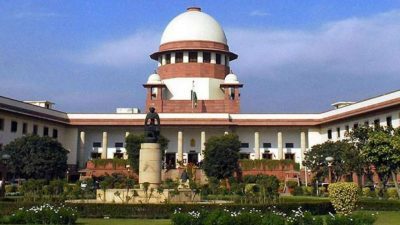
Of 2,328 convicts awarded death penalty, only 4 executed: NCRB data

The indefinite delay in the execution of death sentence awarded to the Nirbhaya gang-rape case convicts raises questions about the very process and its implementation.
The National Crime Records Bureau (NCRB) data adds fuel to the growing discontent over the delay. Out of 2328 convicts awarded capital punishment between 2001 and 2018, only four convicts were executed, the data shows.
The capital punishment awarded to 4888 convicts’ even before the set period 2001-19 were either altered to life imprisonment or were acquitted of the charges against them by the High Courts and the Supreme Court.
As of December 2019, approximately 378 convicts are still on the death row, whose review petitions against the trial courts’ verdict are pending before the High Courts or Supreme Court.
Rising demand for death penalty
Following Nirbhaya’s gang-rape and murder, demands for capital punishment for sexual assaulters increased significantly even as a section of the society batted for the abolishment of capital punishment.
The law Commission’s report on Death penalty concludes that the administration of capital punishment remains fallible.
“Numerous committee reports as well as judgements of the Supreme Court have recognized the administration of criminal justice in the country is in deep crisis. Lack of resources, outdated modes of investigation, over-stretched police force, ineffective prosecution, and poor legal aid are some of the problems besetting the system. Death penalty operates within this context and therefore suffers from the same structure and systemic impediments,” the report read.
Madras High Court Justice (retired) Hariparanthaman also felt that the gap in the sentence and the execution is due to the long delay in the trial. Talking tot The Federal she said, “Death penalty is not going to pave way for any reform. But, what the people expect is a speedy justice for the crime, which is not being done in the present judicial system. The police system should systematically collect the evidences and present the witnesses before the court to conduct the speed trial,” Hariparanthaman said.
Prisoners’ state prior to execution
Some of the senior lawyers The Federal spoke to said the death row prisoners suffer from agony, anxiety and fear out of uncertain execution.
“The very purpose of punishing an accused of committing a crime is to reform him. But, in the death penalty, there is no reform. Also, the definition of the death penalty is that the convict has to be killed in a way he/she is least hurt. But, before execution, the convict undergoes tremendous mental stress,” said Sudha Ramalingam, advocate at Madras High Court.
According to Law Commission’s report, the Supreme Court has also acknowledged that an amalgam of such unique circumstances produces physical and psychological conditions of near torture for the death row convict.
Though she does not want to leave anyone guilty from the clutches of the law, Sudha opined that not all the people committing grave crimes are being granted capital punishment. “It is the economically and socially downtrodden people who are being sentenced to capital punishment and are not able to get away from the clutches of the judicial system,” she added. Sudha also said that only a speedy trial would deliver justice.
She also acknowledged that the merits of the case alone does not lead to a capital punishment.
In India, capital punishment can be given granted for the accused charged with rape, murder, terrorism and atrocities towards scheduled caste and scheduled tribes. There are about 34 laws including 12 IPC sections for which the maximum punishment can be capital punishment.
Recently, a bill was passed in both the houses which enabled capital punishment for crime against Children. However, the Law Commission of India in 2015, had recommended to abolish death penalty in all the cases except in terrorism-related crimes and waging war against the country.

